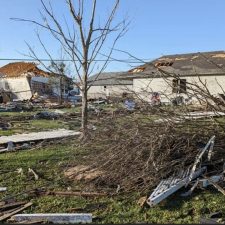
When disputes involving personal injuries or businesses go through a legal resolution process, lawyers of each party have the right to conduct formal investigations to collect relevant information about the case.
The discovery process can follow different procedures, such as requesting documents, interrogatories (written questions), and conducting depositions. Of all these discovery procedures, depositions tend to scare and make victims or witnesses to civil litigation more nervous.
For a smooth experience, it is imperative to understand what is involved in a deposition.
What is a deposition?
It is a legal procedure that provides attorneys with the opportunity to learn and pin down oral testimonies of witnesses. The testimonials may be transcribed or videotaped. In most cases, depositions occur outside courts, without the supervision of a judge.
The intent is to allow the parties to learn all of the facts, details, and circumstances of the case before appearing in court, so no one is caught off-guard at trial. Depending on the findings, the parties may opt for a settlement or proceed to trial.
The intent is to allow the parties to learn all of the facts, details, and circumstances of the case before appearing in court, so no one is caught off-guard at trial. Depending on the findings, the parties may opt for a settlement or proceed to trial.
Parties present at a deposition
Depositions typically take place at the office of the attorney. The parties usually present are the plaintiff, defendant, prosecuting lawyer, defending lawyer, witnesses, and court reporter. The court reporter or stenographer will record the proceedings of the deposition and later produce official written transcripts.
The intent is to allow the parties to learn all of the facts, details, and circumstances of the case before appearing in court, so no one is caught off-guard at trial. Depending on the findings, the parties may opt for a settlement or proceed to trial.
Before a deposition
Depositions typically take place at the office of the attorney. The parties usually present are the plaintiff, defendant, prosecuting lawyer, defending lawyer, witnesses, and court reporter. The court reporter or stenographer will record the proceedings of the deposition and later produce official written transcripts.
The intent is to allow the parties to learn all of the facts, details, and circumstances of the case before appearing in court, so no one is caught off-guard at trial. Depending on the findings, the parties may opt for a settlement or proceed to trial.
During a deposition
A deposition typically follows the same path as an examination or cross-examination at trial. The attorneys will ask the deponents a series of questions to gather the information that is considered critical to a case.
Deponents are required to answer all the questions to the best of their ability. But, if the lawyers don’t agree on the necessity or significance of any questions asked, they may object it.
It is also essential to keep in mind:
During a deposition
A deposition typically follows the same path as an examination or cross-examination at trial. The attorneys will ask the deponents a series of questions to gather the information that is considered critical to a case.
Deponents are required to answer all the questions to the best of their ability. But, if the lawyers don’t agree on the necessity or significance of any questions asked, they may object it.
It is also essential to keep in mind:
- Deponents may request a break to go to the restroom, or for other needs. However, the break may not be granted while a question is pending.
- Videotaping can be allowed, especially if the deponent is sick or out of town/unavailable.
- While deponents can modify their answers in review, the opposing counsel will be made aware of those modifications during an examination trial.
- Court reporter will take down every word the deponents say and objections and comments made by attorneys.
After a deposition
The court stenographer prepares a transcript of everything recorded during a deposition. Then, he or she sends copies of the transcript to each party.
Please note some statements can be subject to different interpretations, and each party in the case will want to exploit the specific details to their advantage. Well, this can either promote a settlement or lead to a trial. If the case ends up in court, the transcripts will serve as evidence.
Preparing for a deposition
Proceedings of depositions require proper preparation. An experienced attorney can help you summarize all aspects of the case, so you have an idea of what might be brought before the deposition.
Consult a Personal Injury Attorney Louisiana
If you need a trusted personal injury lawyer in Louisiana to fight for your rights, contact The Mahone Firm. Call (504) 564-7342 to request a free case evaluation.






